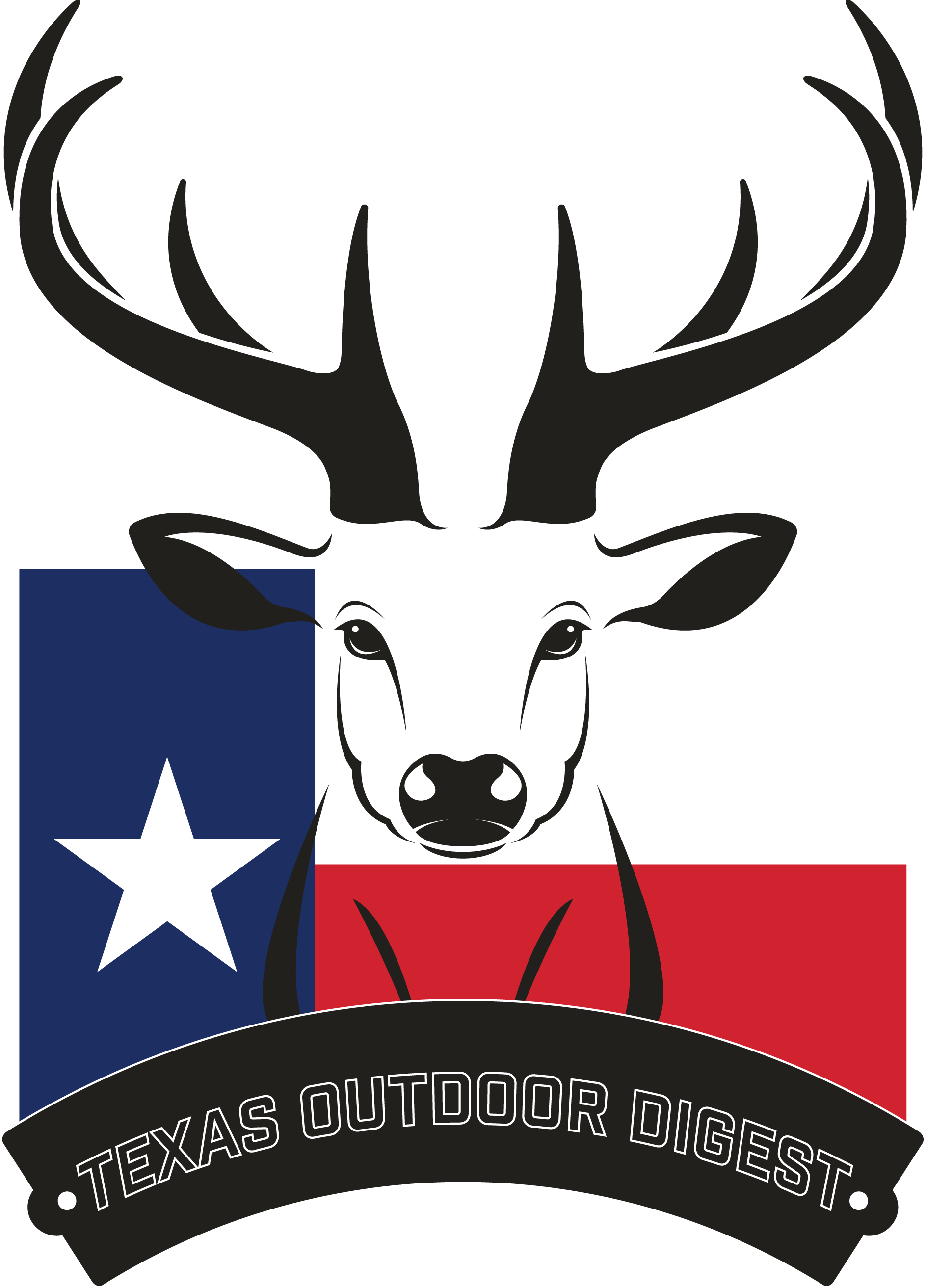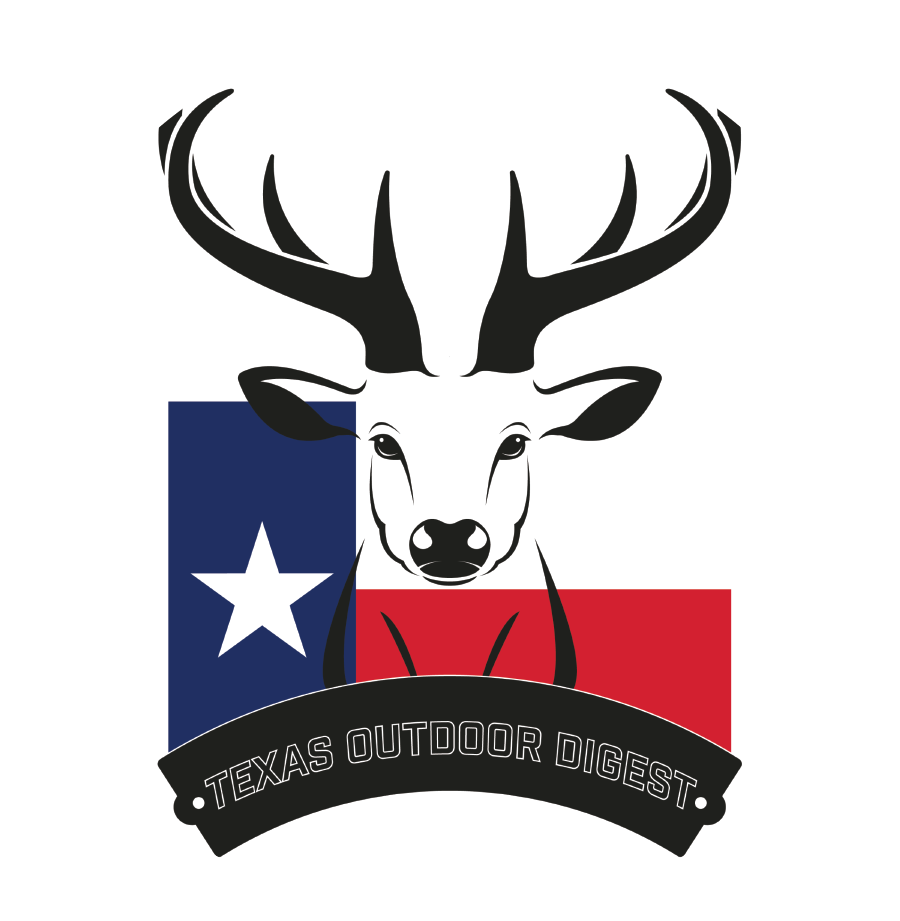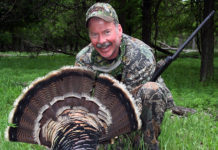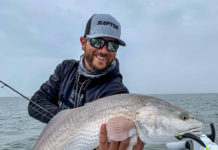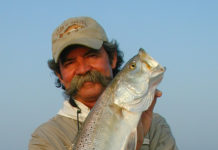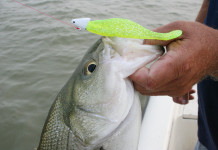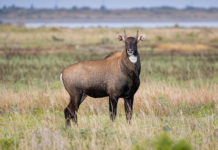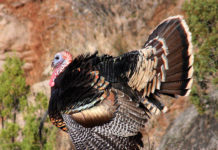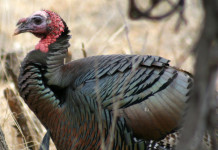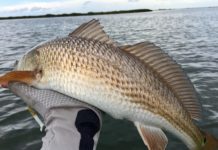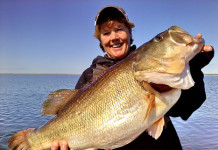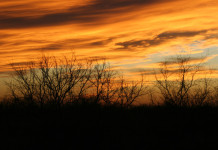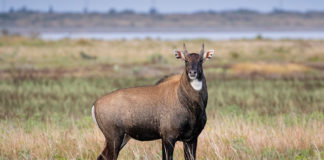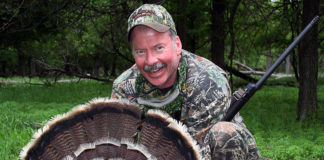The Daily Texas Outdoor Digest is sent to your inbox to keep you up to date about hunting, fishing, conservation and outdoors pursuits making headlines and going viral in the Lone Star State and beyond. It’s free, so subscribe today!
Here’s what’s worth reading today, Wednesday, April 14, 2021:
Shed hunting keeps deer hunters busy during offseason
The proposed closures of caribou hunting on some federal lands isn’t based on population declines—it’s about human conflicts
The DOI’s proposal to temporarily close non-local and non-resident caribou hunting on some federal lands in Alaska, except to qualified subsistence hunters, doesn’t seem rooted in herd management goals.
Would you believe that one tele-meeting on April 23 stands between would-be caribou and moose hunters and their access to nearly 60 million acres of public federal land in Northwest Alaska? It’s an issue that hasn’t made waves until now, but it’s one hunters should know about.
The forthcoming public hearing was announced Friday by the Department of the Interior for public consideration of Temporary Wildlife Special Action Request WSA21-01, which would close all federal lands within Game Units 23 and 26A to moose and caribou hunters who aren’t “federally qualified subsistence users” from Aug. 1 through Sept. 30, 2021, which happens to coincide with the non-resident hunting season for caribou in Unit 23, and most of it in Unit 26A.
Think this won’t happen? Close to 1.5 million acres of BLM land in unit 13 were also just closed in 2020 to “non-qualified” users for caribou hunting. Here’s some background on the issue, and which hunters are affected.
Many of us take for granted our “ownership” of federal lands, and often, wildlife management and non-resident restrictions crop up at the state level. Alaska has also been at the center of public lands debates, such as the rollback of federal regulations, like prohibiting some state-sanctioned predator control and subsistence-hunting practices on federal lands, controversy surrounding potential oil development in part of the Arctic National Wildlife Refuge, and other mining and resource development issues.
It’s also becoming more common for large swaths of federal land in Alaska to close to certain big game hunters who aren’t a federally qualified subsistence user. Many federal lands in Alaska are not only managed by state regulations, but by federal subsistence regulations as well. Those define a qualified subsistence user as any Alaska resident who lives in a rural area. The federal regulations outline nine “non-rural” areas in Alaska, and if you live within those boundaries, you don’t qualify; neither do non-residents. Generally, Alaska’s hunting regulations and bag limits are set by the Alaska Board of Game based on recommendations from Alaska Department of Fish and Game biologists, management plans, public input, as well as local and regional Advisory Committees, on which elected members serve to represent local interests and user groups when it comes to protecting and managing resources.
Montana governor signs two trapping bills targeting wolves
Gov. Greg Gianforte has signed two bills into law designed to reduce the wolf population in Montana. The new laws extend the wolf trapping season by four weeks and allow wolf trappers to use neck snares.
Republican representative Paul Fielder of Thompson Falls, sponsor of House Bills 224 and 225, cited declining elk harvests in Northwest Montana as a sign that wolf populations are out of control.
“It seems like wildlife managers need another tool to manage wolf populations,” he said.
The latest population data show just over 1,100 wolves in Montana, concentrated almost entirely in the western half of the state. Fielder said that’s more than four times the minimum for a recovered population set by wildlife managers.
After more than 30 years of protection under the Endangered Species Act and legal turmoil over their fate, wolves were delisted in Montana in 2011 and returned to state management, which allows for hunting and trapping. That came after wolves were reintroduced to Yellowstone National Park in 1995, and other wolves from Canada naturally recolonized parts of the state.
Since the reintroduction, Fielder said high concentrations of wolves in Northwest Montana have depressed elk numbers.
Killer whales attack fishing boat near Spain
At first, the crew “heard a strange noise and rushed to the top of the ship” thinking they may have hit a container.
The yearlong aggression of orca pods against boats off the coast of Spain and Portugal continues unabated.
By October of last year, there were 33 bizarre “revenge” attacks by killer whales off the coast of Spain and Portugal and it seems they’re not done yet.
A video taken by fishermen in the Straights of Gibralter on April 3 shows the men valiantly fighting off a pod of the angry sea mammals as they attack the boat and break its rudder.
In a video published by The Daily Mail, the captain, Antonio Busse, 40, is seen fighting off the orcas with a pole while screaming at them to “piss off!” “Mamma Mia!” and “get off the (bleeping) boat!”
Other crew members are seen throwing items into the water to try and frighten away the angry pod of four, to no avail, and one large killer whale can be seen swimming underneath the boat — causing the crew to scream in fear. Another video shows the orcas threateningly circling the boat and breaching the surface nearby.
Hunting group challenges outfitters eligibility for charity licenses
Litigation charges that Wyoming Game and Fish is breaking state law by considering outfitter group a ‘charitable nonprofit.’
A lawsuit has been filed in Teton County District Court challenging whether the Wyoming Outfitters and Guides Association is eligible to receive complementary, open-slated hunting licenses to auction off for fundraising.
The litigation pits an advocacy group representing Wyoming resident hunters, an organization named Mountain Pursuit, against the Wyoming Game and Fish Department and its seven-person commission. Mountain Pursuit takes issue with how the trade association that represents Wyoming’s outfitters and guides is a regular beneficiary of complementary licenses that are donated by Wyoming Game and Fish commissioners.
“The plain language of the statute and the rules says that a ‘charitable nonprofit’ has to work for the general public, and Wyoming Outfitters and Guide Association has self-defined itself as not being a charitable nonprofit,” Mountain Pursuit founder Rob Shaul told the News&Guide. “They’re a nonprofit, but they work for the good of their business members — not the general public.”
Ahead of filing the lawsuit Shaul attempted an administrative appeal, but the Wyoming Game and Fish Department wrote him back that the Wyoming Outfitters and Guides Association had signed the necessary affidavit and did fit its definition of a “nonprofit charitable organization.”
The statewide association is registered as a 501©(6), which is a form of nonprofit the Internal Revenue Service recognizes that represents business leagues, trade organizations or chambers of commerce.
First collar video from wild Minnesota wolf shows fishing skills, adaptability
Like many Minnesotans, it fishes, the University of Minnesota project finds.
How exactly do lone wolves spend warm spring days, when food is plentiful and there are no pups to look after?
For generations, researchers have struggled to follow the elusive predators after the snow melts, when the animals split away from their packs to wander or to hunker down in the thick undergrowth of the northern Minnesota woods.
Now with stronger and better equipment and tracking devices, biologists have been getting a closer look at the lives of wolves in summer. And for one wolf, anyway, it seems that warm and sunny days are meant for fishing.
“And sleeping,” said Tom Gable, project lead of the University of Minnesota’s Voyageurs Wolf Project. “Wolves spend a lot of time sleeping.”
Researchers attached a video camera to the collar of a wild wolf for the first time in Minnesota last spring before letting him loose in Voyageurs National Park. The camera’s battery lasted one month, taking 30-second video clips every hour during daylight, providing something of a wolf-guided tour of the park. The Voyageurs Wolf Project is releasing a three-minute highlight reel of the footage on Wednesday.
The wolf most likely didn’t belong to any of the park’s established packs, and researchers couldn’t tell where he came from or where he went once the camera’s battery died. (Then the GPS-equipped collar popped off and researchers recovered it.)
2020 NY tree stand accidents with injuries: 11 of 13 involved hunters who didn’t wear safety harnesses
The state Department of Environmental Conservation reported 13 tree-stand accidents that resulted in serious injuries during the 2020 fall hunting season.
There was one death. On Nov. 24, a 50-year-old hunter fell 14 feet while descending from his ladder stand in Orange County. The hunter hit the ground, breaking his neck and several vertebrate. DEC, who did not release the hunter’s name, said he had 37 years of hunting experience.
A revealing statistic in the DEC’s accident summary was that 11 of the 13 accidents last fall – including the fatal – involved hunters who were not wearing safety harnesses.
DEC noted that seven of the accidents involved ladder stands, four involved climbing tree stands and two occurred with hang-on tree stands.
The 2020 figures were accumulated based on incidents that were reported to the DEC. New York hunters are not required to report their accidents.
Turkey hunter dies from apparent heat stroke
Authorities believe a medical condition was responsible for the April 10 death of a 37-year-old Flomaton man who died while turkey hunting in a wooded area of the Wallace community.
Escambia County Sheriff’s Office reports show that deputies and other emergency responders were dispatched to a spot off Rawls Road in response to a 911 call.
Deputies were advised upon arrival that two turkey hunters were walking in the woods and one of them, later identified as Dempsey Leon Hadley, “got overheated.” The Flomaton man “suddenly fell to the ground and stopped breathing,” at which time his hunting partner called for medical personnel.
Medstar EMS, Pineview Fire Department and Barnett Crossroads Fire Department all sent units to the scene, but efforts to save him proved futile. He was pronounced dead at the scene.
Sheriff Heath Jackson said the county medical examiner was notified, and an autopsy will be conducted to determine the cause of death.
A GoFundMe account has been set up to help pay funeral costs for Hadley, reportedly a member of Flomaton High’s Class of 2002.
Stay in the Know With the Daily Texas Outdoor Digest
If you haven’t subscribed yet, there’s no better time than right now (We hate spam and we won’t share your information with anyone. That’s just not cool):
